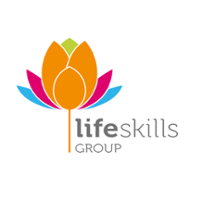What is social awareness?
Social awareness is a crucial component of any successful Social & Emotional Intelligence (SEL) program. It encompasses essential life skills like empathy, compassion, and the understanding of relationships. Learning these skills early enables young people to effectively navigate situations and understand how to connect with people on an emotional and physical level that also considers the most important human elements.
Succeeding in life depends in large part on succeeding socially, and a large part of social success depends on Emotional Intelligence (EQ). [Source]
The Importance of Social Awareness for Young People
Developing strong social awareness skills is essential for helping a child enhance their ability to regulate their emotional wellbeing. This is most effective when initiated at a young age through a combination of traditional school-based education and curriculum-aligned programs designed to supplement children's learning through various Social and Emotional Learning (SEL) activities and exercises.
As adults, we often underestimate the value of the life skills we have acquired over the years. These skills are an integral part of our daily lives, yet we often neglect to pass them on to the younger generation, only realizing their importance as we enter adulthood. Children face many challenges in the modern world on a daily basis and often lack the necessary coping mechanisms to overcome them. That's why it is crucial for us to make a conscious effort to instill these skills and equip them with the tools they need to navigate work and social life successfully.
Benefits of effective social awareness are:
- It allows you to form strong friendships and relationships.
- It promotes compassion and empathy when interacting with others.
- It helps to understand strengths and weaknesses.
- It improves social and emotional wellbeing.
So how do you start introducing social awareness skills to your child?
Here are 3 Strategies to Improve Children’s Social Awareness:
-
Challenge Your Child to Understand Everyday Situations
When your child has witnessed you having a conversation with another person or family member, discuss it with them. Then ask what they noticed in terms of language, body language, and facial expressions which were exchanged over the course of the conversation. This can be a good exercise to show children how when you treat people with respect it is likely reciprocated.
Teaching a child to understand nonverbal cues can give them an idea of how certain words and reactions can make others feel. By developing this sense of empathy, it becomes easier to form social interactions between peers as well as friendships more successfully.
-
Encourage Children to Participate in Group Physical Activity
Giving your children access to yoga classes is a great start, whether it be at school or at home with others. Yoga provides fundamental movement, flexibility as well as improving coordination and energy levels.
Being a non-competitive exercise, with an ethos which requires you to ‘leave your ego at the door’ it creates an environment where confidence can be built, independent of others. These ideas of self-acceptance and spatial awareness give children the skills to manage stress and anxiety, while also being compassionate towards their peer’s strengths and weaknesses.
For more information on how to get yoga into your child’s school see our student programs.
-
Be a Role Model
When demonstrating that you can show compassion and empathy towards others as a respected caregiver, this is the best possible reason for a child to follow suit. In their formative years, such a strong example can not only positively reinforce emotional intelligence but also help children understand that adults too make mistakes. No one is perfect and when children know this, they can then learn to develop this empathy with parents and teachers as well as peers - which is invaluable.
Effective social awareness is not only a key building block of emotional intelligence, but a fundamental aspect of human interaction particularly moving through adolescence. It is important that such life skills are learned when children are young so that the overall opportunity for social, emotional and physical wellbeing is maximised.
Would you like some support with developing social awareness for your school? Schedule a time to meet with one of our School Wellbeing Advisors today!
.png?width=500&height=374&name=Logo_transparent%20(2).png)





